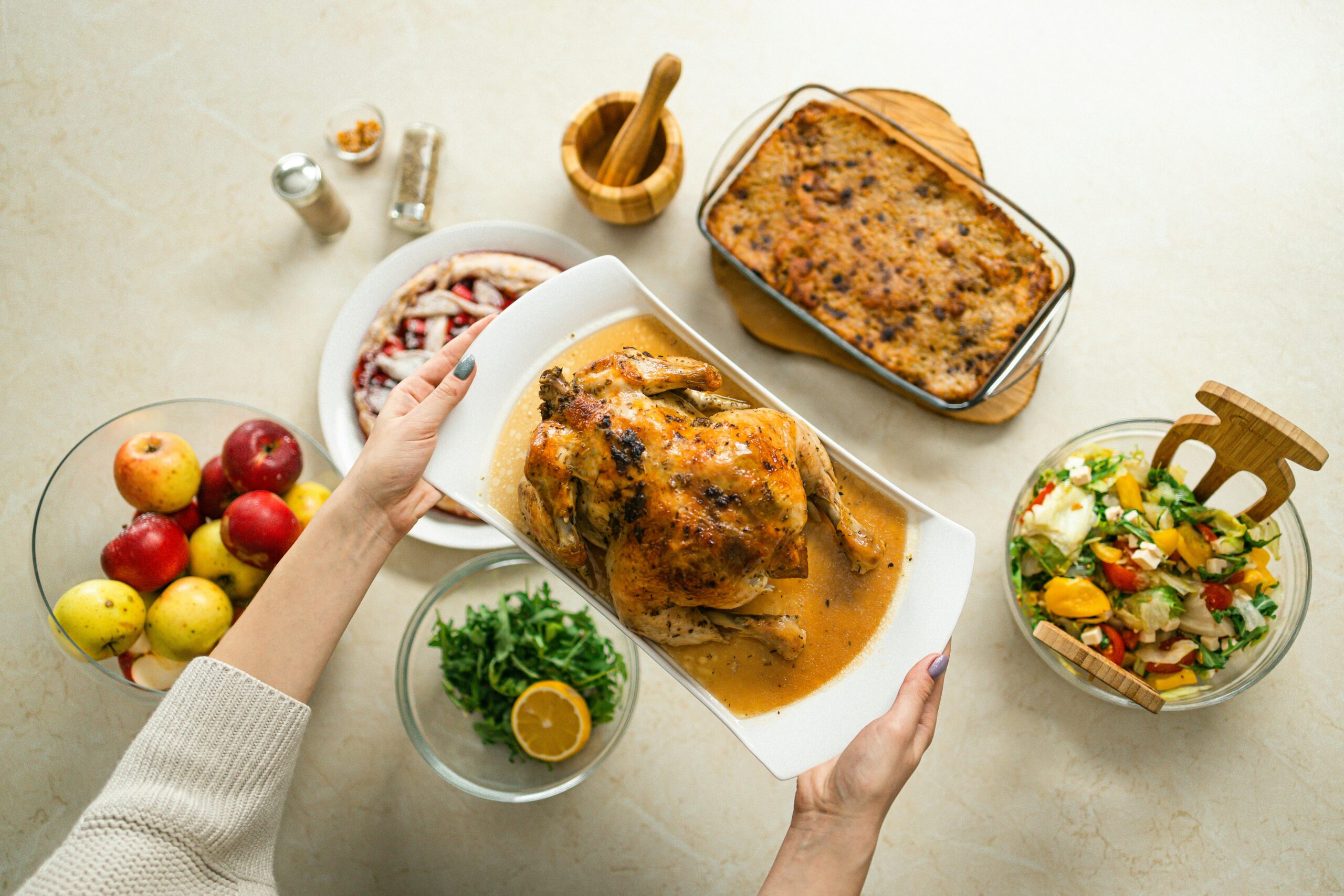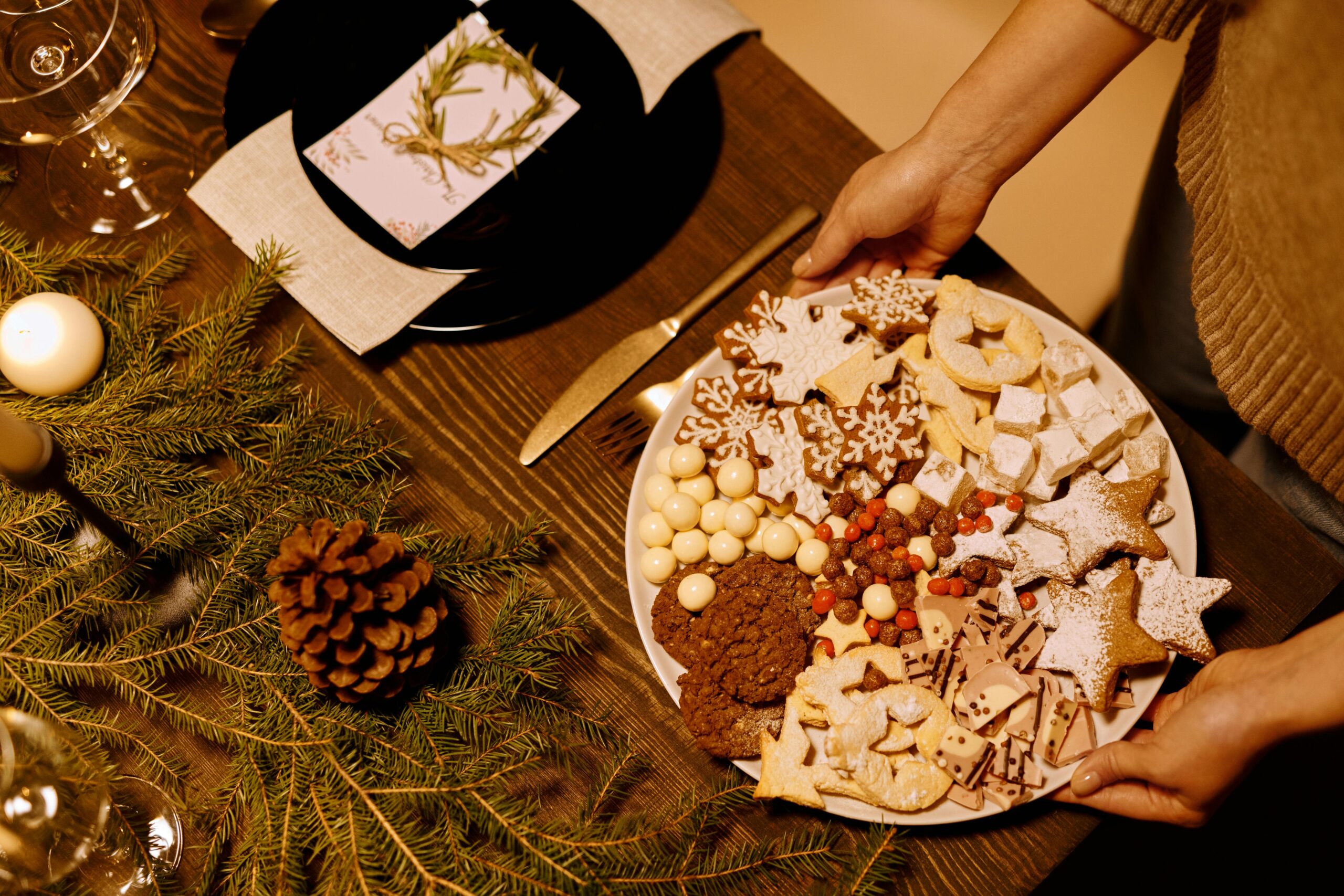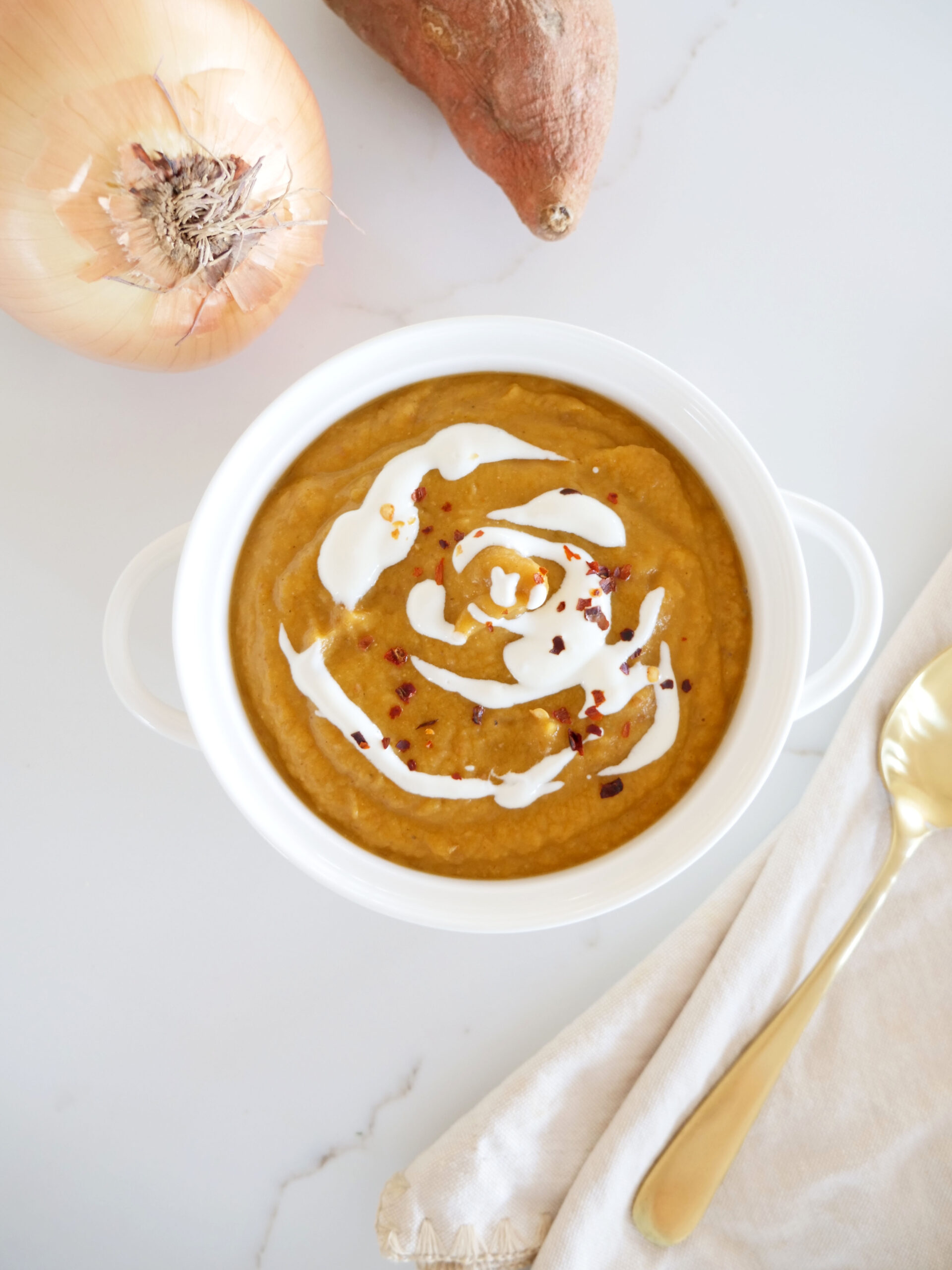
The holidays are a time for celebration, but they can also bring on stress—and sometimes that stress ends up on our plates. Between rich comfort foods and endless sweets, it’s easy to find ourselves reaching for holiday treats when we’re feeling overwhelmed. The good news is that you can enjoy your favorite holiday foods while staying focused on nutrient-dense choices. Here’s how to navigate the season without stress-eating, while supporting your body with what it needs.
- Build a balanced plate
Creating a balanced plate can make a huge difference during the holidays, allowing you to enjoy all the festive flavors, without feeling overly full or resorting to stress eating. Focus on a balance of protein, non-starchy vegetables and complex carbohydrates like vegetables, beans and fruit.
First, fill half your plate with non-starchy vegetables like leafy greens, brussels sprouts, cauliflower, broccoli and carrots. These vegetables are nutrient-dense and low in calories, adding volume, fiber and nutrients that satisfy you, without weighing you down.
Next, fill a fourth of your plate with protein like turkey, fish and legumes, which help you feel fuller longer and can help stabilize blood sugars.
Finally, fill the remaining fourth of your plate with smart starches like winter squash, potatoes and whole grains, which provide slow-releasing energy and can help keep you feeling satisfied, longer.
2. Make healthier versions of classic favorites.
Making healthier versions of holiday classics can help you indulge without going overboard.
Lighten up your mashed potatoes by making them with a blend of cauliflower and potatoes. Cauliflower adds a creamy texture without overpowering the potatoes, all while reducing the carbohydrates and calories, and adding fiber and nutrients.
When it comes to stuffing, load up on the veggies like diced mushrooms, celery, carrots and onion to add volume, nutrients and flavor, allowing you to cut back on the bread and butter used. This also adds a variety of vitamins, minerals and antioxidants that contribute to overall wellbeing including B vitamins, potassium, vitamin C and beta-carotene antioxidants.
Bump up the protein of your mac and cheese with chickpea pasta which adds satisfying plant protein and filling fiber. For the cheese sauce, blend in steamed butternut squash or cauliflower. This lightens up the dish by reducing the need for heavy cheese and cream, while still achieving that creamy texture.

3. Think moderation, not restriction
Focusing on moderation over restriction is key to enjoying the holidays without feeling deprived or stressed about food. Rather than sampling everything on the table, pick a few dishes and appetizers that you truly love. When you allow yourself to fully enjoy a few favorite foods, you’re more likely to feel satisfied and less likely to overindulge later. Plus, by embracing moderation, you can stay present and engaged in the holiday experience rather than fixating on restrictions or guilt.
If you choose to drink alcohol, limit yourself to 1–2 drinks and alternate with water or sparkling water to stay hydrated. Opt for lighter drinks, such as a spritzer, vodka soda, or a glass of wine. Avoid sugary cocktails that can quickly add up in calories. Sip slowly and enjoy your drink, treating it as part of the experience rather than a way to fill time.
4. Fill in nutrient gaps with supplements
Incorporating supplements during the holiday season can be a helpful way to fill in nutrient gaps, especially when our eating patterns tend to vary from our usual routines.
A daily probiotic supplement like TruBiotics can help maintain a balanced gut microbiome to support digestive health. Probiotics also play a role in immune health, which is particularly helpful during cold and flu season.
A vitamin D supplement may also be of benefit. With shorter daylight hours in winter, it’s common to have lower vitamin D levels, which can affect immunity, mood and energy levels.
If you are thinking of adding a new supplement to your regiment, always check with your healthcare practitioner on whether these are right for you and how much you need. And, remember, give your body time to adjust to them—it takes time to see and feel effects.
Electrolytes can be another helpful addition to your routine. With holiday gatherings, rich meals and potentially more alcohol consumption, it’s easy to become dehydrated, which can lead to low energy and even cravings. Electrolyte supplements can help maintain the right balance of fluids in your body and help ensure you are well-hydrated. Electrolyte mocktails are a great idea for staying hydrated during the holidays while keeping things festive. One of my favorite combinations is to combine equal parts pomegranate juice, ginger beer and sparkling water with one packed of electrolytes such as a berry or lime flavor.

5. Manage stress beyond food
Implementing a few mindful practices can make a difference in how you navigate the busy holiday season, without turning to stress eating or feeling overwhelmed.
Prioritize a consistent bedtime, aiming for 7-9 hours to help manage stress and keep your energy steady. Stay active by incorporating physical activity daily, which can be as simple as a walk or stretching. And prioritize self-care which can look as simple as a 10-minute warm bath or reading.
Nourishing Sweet Potato Soup
This Nourishing Sweet Potato Soup is a cozy, satisfying dish that’s loaded with vitamins like vitamin C and vitamin A in the form of beta-carotene, fiber and antioxidants. Its warm, creamy texture and subtle sweetness make it the perfect comfort food for colder days, made with ingredients that support immune health and energy.

Nourishing Sweet Potato Soup
Ingredients
- 2 cups large sweet potatoes, halved
- 2 cups cauliflower florets
- 1/2 yellow onion, halved
- 1 head garlic, top sliced off and wrapped in foil
- 1/2 apple
- 2 tbsp olive oil
- 4 cups vegetable broth
- 1 tsp nutmeg
- 1 tsp paprika
- 1 tsp rosemary
- salt +pepper
Instructions
- Preheat the oven to 400 F.
- Place the sweet potatoes, cauliflower, onion, garlic, and apple on a baking sheet. Toss with oil, salt and pepper and bake for 30 minutes.
- Transfer the fruits and vegetables to a food processor with the broth and seasonings, and process until smooth.